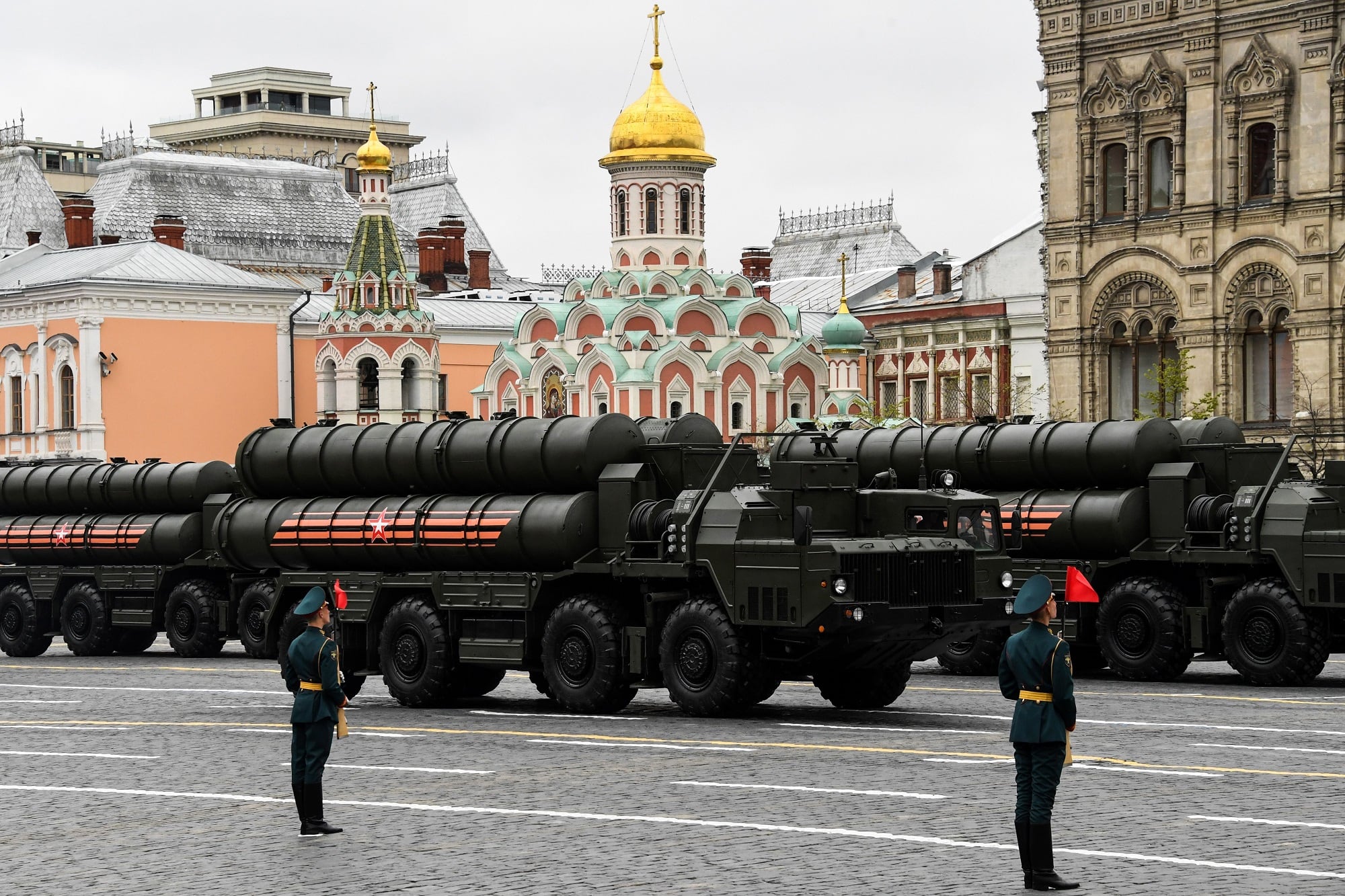ANKARA, Turkey — With his nearly limitless powers legislated after an election victory on June 24, Turkish President Recep Tayyip Erdogan is the sole authority to decide whether Turkey should actually acquire the Russian-made S-400 air defense system, scrap that deal and go for a NATO system, or opt for both, officials and analysts said.
“This is not a conventional bureaucratic decision based on technological superiority and/or price,” a presidential aide said. “There have been a multitude of political deliberations since Turkey came to the point of shaking hands with the Russians. These deliberations are still in effect.”
Turkey’s top defense procurement office confirmed in late December that Ankara and Moscow had finalized a contract for the acquisition and deployment of the Russian S-400 long-range air and anti-missile defense system on Turkish soil. If materialized, this will be the first time a NATO member state would be deploying the S-400.
The contract involves the acquisition of one S-400 system with an option to purchase a second system. Turkish officials have said the delivery of the S-400 was scheduled for the first quarter of 2020.
“The [S-400] contract has been signed, an advance payment has been made and a financing deal has been penned,” said the procurement office, then named the Undersecretariat for Defence Industries, or SSM. “The contract includes a joint development commitment and cooperation for technological know-how.”
RELATED

SSM previously reported to the defense minister, but it now reports to Erdogan after presidential decrees reshuffled most of Turkish bureaucracy and several key offices came under direct control of the president. The office is now reflagged “Presidency of the Republic of Turkey Undersecretariat for Defence Industries” and operates as a presidential office.
“Under the new presidential system, only Erdogan could decide that the S-400 deal should be reviewed, put off or scrapped,” according to a London-based Turkey specialist. “So far there has not been any sign he should rethink his earlier decision.”
Turkey’s decision to negotiate and go for the S-400 system emerged shortly after Ankara and Moscow normalized their badly strained ties in June 2016. Russia sanctioned Turkey after the Turkish military shot down a Russian Su-24 military aircraft along Turkey’s border with Syria in November 2015.
With the improved diplomatic relations, Turkey has extensively cooperated with Russia in Syria’s civil war. In return, Russia has gradually removed sanctions and allowed Turkey to launch a cross-border operation into northwestern Syria in January, targeting Kurdish militias stationed in the area.
A procurement official said the S-400 acquisition would be a presidential decision involving almost no bureaucratic input. “It remains a political issue rather than a procurement issue. President Erdogan does not understand why Turkey’s NATO allies should be worried over the deployment of a non-NATO, defensive, not-offensive, system,” he said. “Unless … of course Turkey’s NATO allies think of attacking Turkey one day.”
Turkish defense procurement bureaucracy says the $2.5 billion S-400 system would be operated by Turkish personnel and supported by a locally developed identification friend or foe, or IFF, system. Turkey wants to make the S-400 a stand-alone system it can operate with its own source codes, including the IFF. Turkey will have to operate the S-400 on a stand-alone basis because it is not interoperable with NATO and U.S. assets deployed on Turkish territory.
Erdogan has repeatedly said Turkey was also interested in S-400 know-how as well as acquiring the Russian-made S-500 system, an advanced version now under development.
Meanwhile, two Turkish state-controlled defense companies, Aselsan and Roketsan, have been in negotiations with Eurosam, a European consortium, for the co-production of the SAMP/T, an air defense architecture viewed as the European rival to the S-400 and the U.S.-made Patriot missile defense system.
The U.S. State Department recently said it was working with Turkey on the possible sale of a Patriot system to avert its purchase of the Russian-made system. Tina Kaidanow, acting U.S. assistant secretary of state for political-military affairs, told reporters at the Farnborough Airshow that U.S. officials were “trying to give the Turks an understanding of what we can do with respect to Patriot.”
Turkey has twice passed over the Patriot — in 2013 when it chose a Chinese system (but later dropped it), and in 2017 when it said it finalized the S-400 deal.
Turkey is a NATO member, and its negotiations for the purchase of the Russian system have raised concerns with allies who say the country should invest in technology that is compatible with theirs.
Turkish leaders say it’s up to Turkey to make its own decisions on defense purchases.
NATO officials have warned of “necessary consequences” for Turkey should the alliance member purchase the Russian air defense system.
Burak Ege Bekdil was the Turkey correspondent for Defense News.






